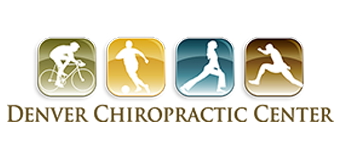What happened in Vegas, Dr. Stripling’s Self-Help video for Neck Pain, and this week’s 1-Page Health News, from Denver Chiropractic Center
This weekend Meredith and I (Glenn) jetted off to Las Vegas so I could teach at the Active Release Techniques seminar there, and so we could hang out at night. Meredith saw (or almost saw, I never did get the story straight) the Victoria Secret models and Magic Johnson (not together). I did not. Anyway, as always Vegas was fun for a couple of days and then got really old really quickly.
Dr. Stripling and Keri held down the fort here at the office, and shot a video on a great neck stretch for those of you who work at a desk all day. The link is below.
Next week is the last week of the year for us, and we’ll be closed from December 22 through January 1, opening back up on January 2. Dr. Hyman will be on call in case of emergency. His cell phone # will be on our voicemail.
Mental Attitude: Reaction To Stress. How people react to stress determines how that stress will affect their health. Study volunteers were separated in two groups: 1) those who let their troubles affect their emotional state and 2) those who didn’t let stress bother them at all. At a 10-year follow up, those who let stress affect them (group 1) were more likely to suffer from chronic health problems. Penn State, November 2012
Health Alert: Hip Replacement and Stroke Risk. Hemorrhagic stroke and ischemic stroke risk is ~4% higher within 2 weeks of total hip replacement surgery. A hemorrhagic stroke is brought on by bleeding in the brain, while an ischemic stroke is brought on by arterial blockage. Total hip replacement is extremely common in the United States. Around 1 million hip replacement surgeries are done around the world every year, 300,000 in the United States alone. Stroke, November 2012
Diet: Vitamin D Levels Decreasing? Women with health issues such as arthritis, hypothyroidism, cancer, high blood pressure, and osteoporosis are much more likely to have inadequate levels of vitamin D during seasons with decreased daylight. 28% of women had deficient levels and 33% had insufficient levels of vitamin D. Women taking supplements were able to significantly elevate their vitamin D levels.
American Society for Clinical Pathology, November 2012
Exercise: Exercise When You’re Sick? The choice to exercise or not sometimes depends on the sickness or disease. Our bodies work harder and use more energy when we are fighting an illness. If symptoms are above the neck (sore throat, runny nose), it is probably okay to exercise. If you’re sick but still want to exercise, simply reduce your intensity and duration. You should not exercise if you have body aches, fever, diarrhea or vomiting, shortness of breath or chest congestion, dizziness or light-headedness. When resuming your regular exercise routine, try starting with 50% effort and 50% duration. Loyola University Health System, November 2012
Active Release Techniques: Sliding Nerves? Nerves need to slide past muscles and other structures in your body. As tight muscles put pressure or pinch nerves, they interrupt the blood’s circulation to the nerve. This can cause symptoms like carpal tunnel in the wrist sciatica in the hip and thigh, and many more problems. Active Release Techniques is the only system that specifically includes treatment protocols for releasing nerve entrapments. Note: Dr. Glenn Hyman is still the only Active Release Techniques instructor practicing in Denver.
Wellness/Prevention: Staying Healthy! “Check out Dr. Stripling’s Self-Help video for Neck Pain:
http://www.denverback.com/?p=966
Quote: “So many people spend their health gaining wealth, and then have to spend their wealth to regain their






